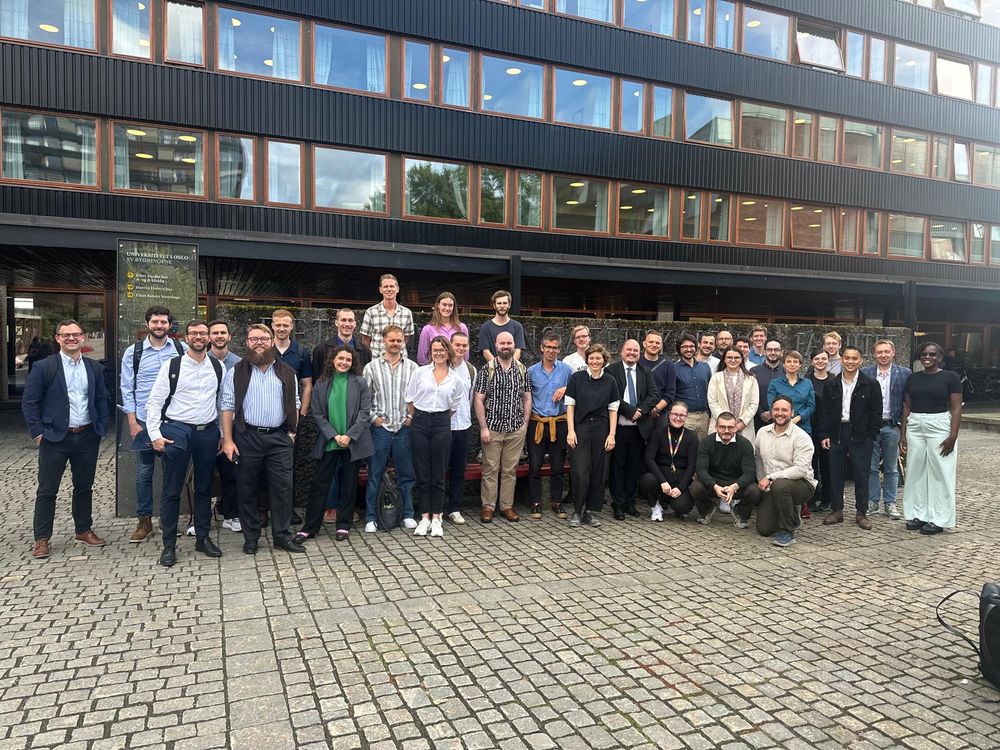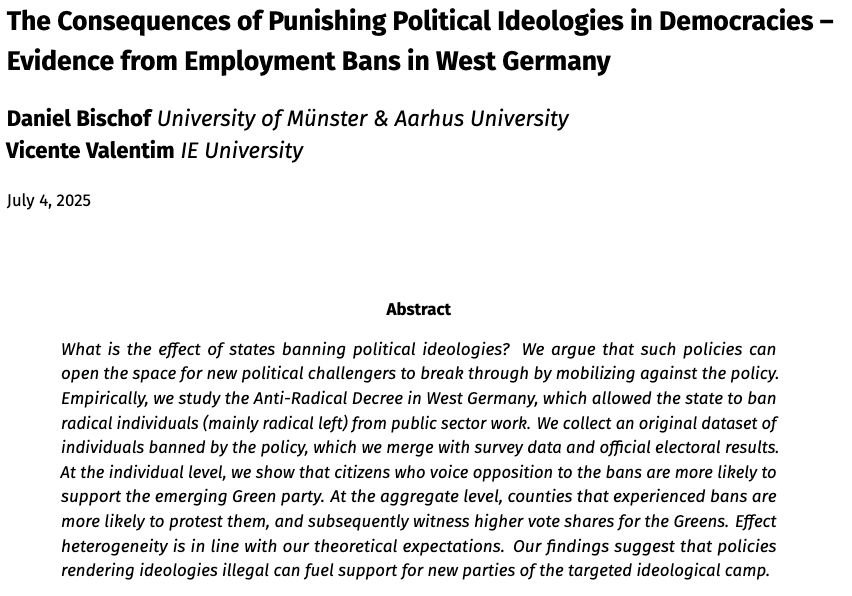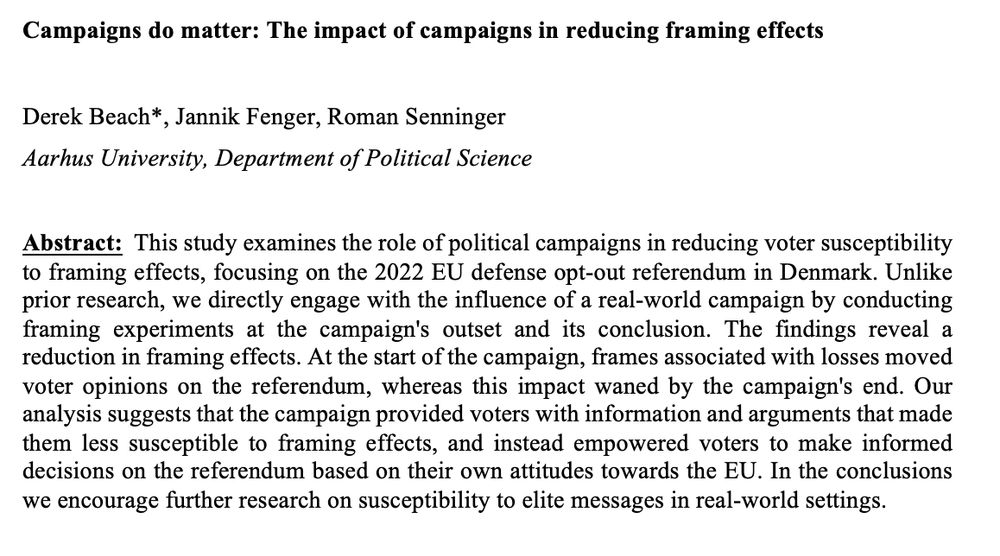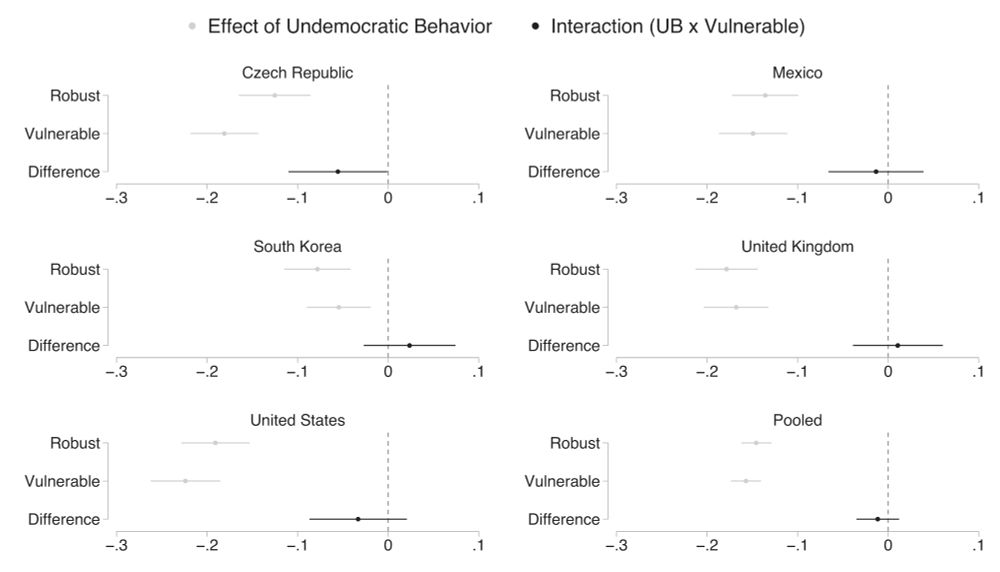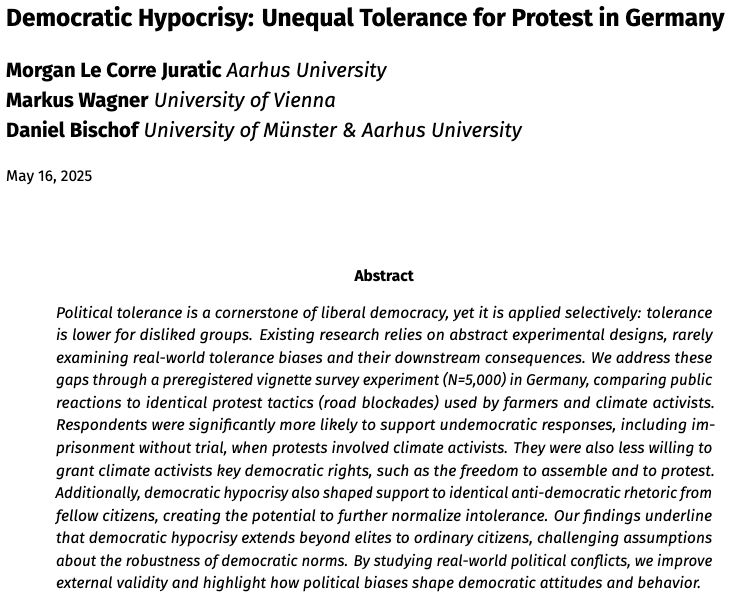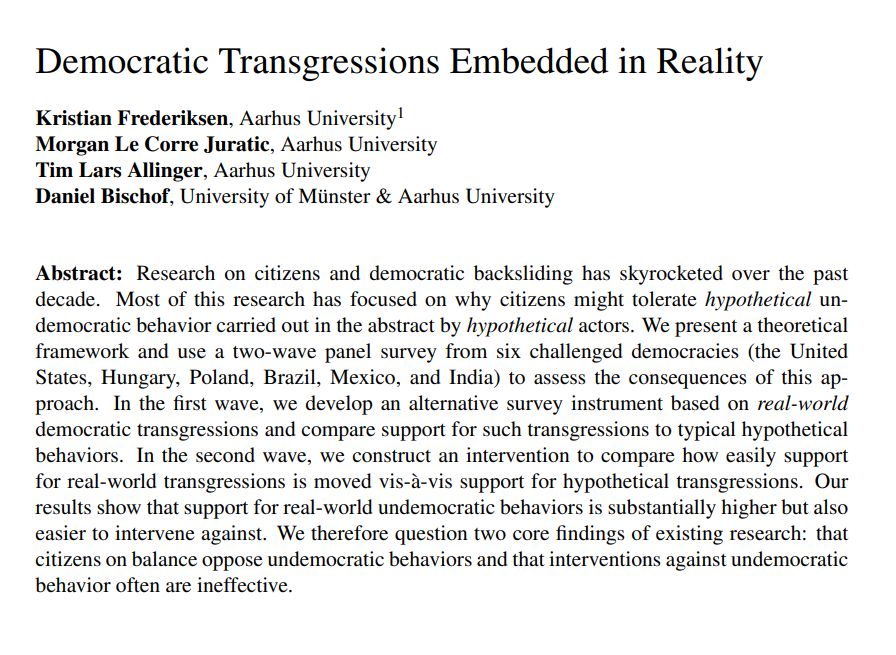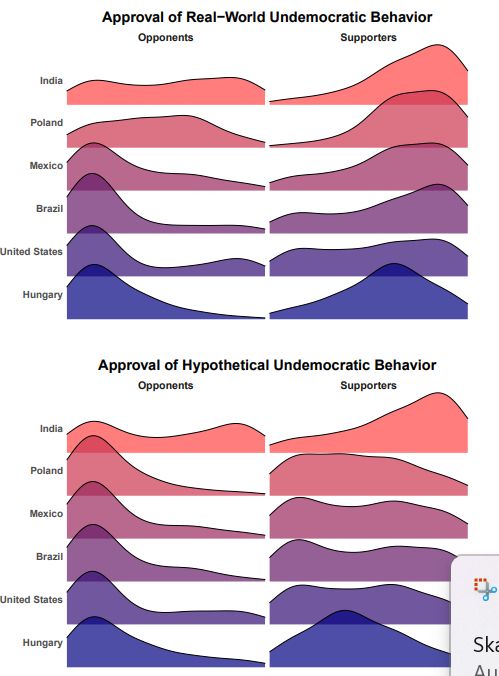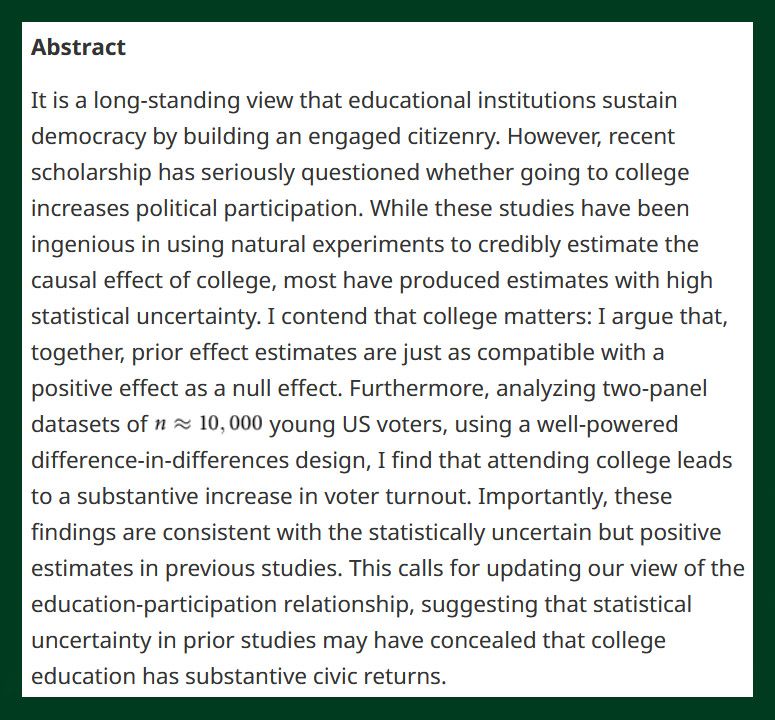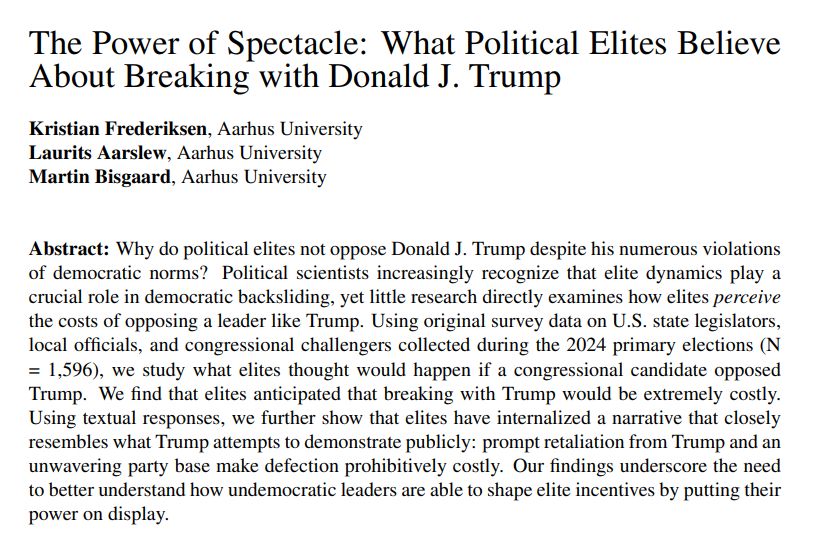Kristian Frederiksen
@kristianvsf.bsky.social
1.2K followers
480 following
90 posts
Assistant professor at Aarhus University. Democratic erosion, citizens & elites. Webpage: https://sites.google.com/view/kristianfrederiksen
Posts
Media
Videos
Starter Packs
Pinned
Reposted by Kristian Frederiksen
𝙅𝙖𝙘🍩𝙗 𝙉𝙮𝙧𝙪𝙥
@jacobnyrup.bsky.social
· Sep 4

Jacob Nyrup awarded EU funds to research political elites
- Department of Political Science
Jacob Nyrup from the Department of Political Science has been granted a substantial 18 million Norwegian kroner by the EU's research council to examine political elites in countries before and after d...
www.sv.uio.no
Reposted by Kristian Frederiksen
Reposted by Kristian Frederiksen
Reposted by Kristian Frederiksen
Reposted by Kristian Frederiksen
Reposted by Kristian Frederiksen
Reposted by Kristian Frederiksen
Reposted by Kristian Frederiksen
Reposted by Kristian Frederiksen
